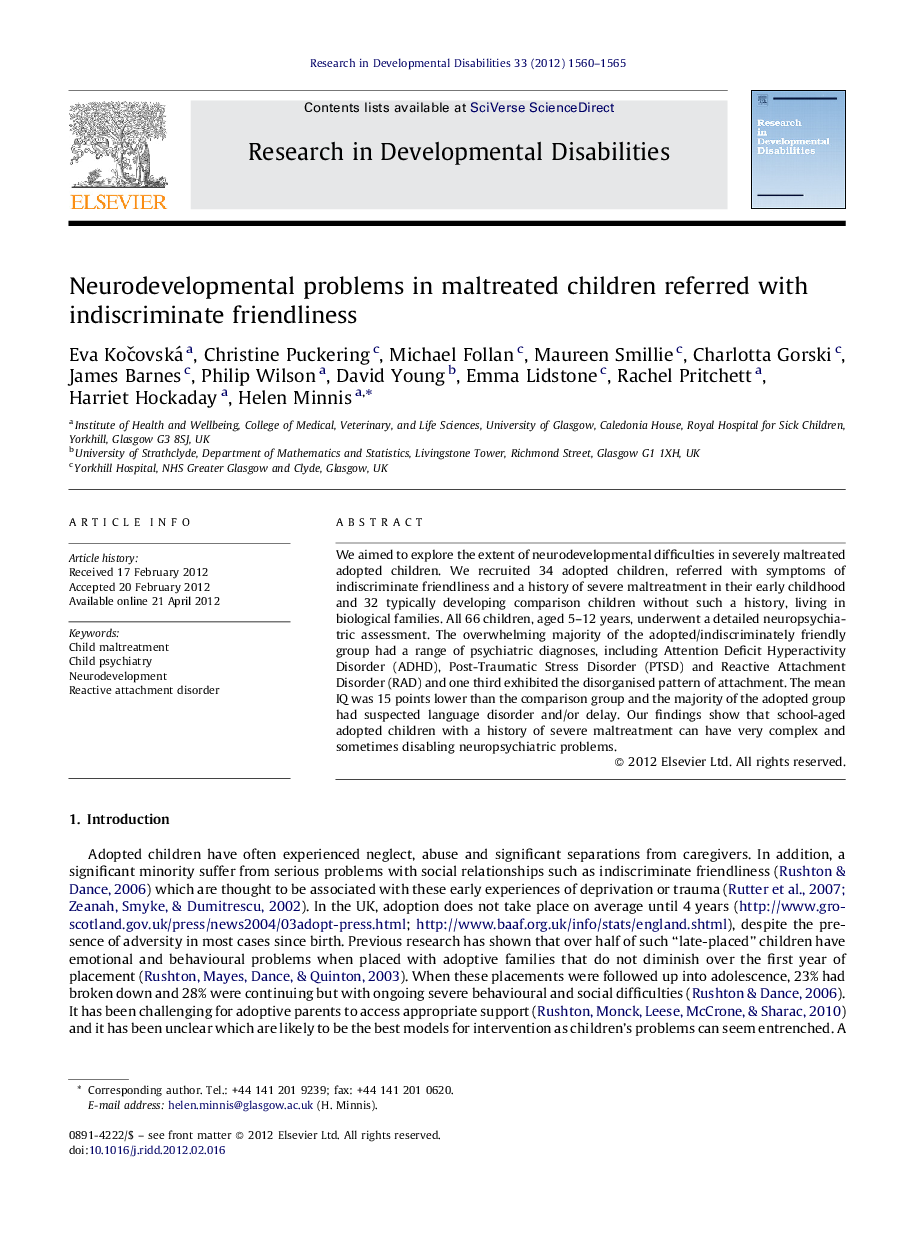| Article ID | Journal | Published Year | Pages | File Type |
|---|---|---|---|---|
| 371978 | Research in Developmental Disabilities | 2012 | 6 Pages |
We aimed to explore the extent of neurodevelopmental difficulties in severely maltreated adopted children. We recruited 34 adopted children, referred with symptoms of indiscriminate friendliness and a history of severe maltreatment in their early childhood and 32 typically developing comparison children without such a history, living in biological families. All 66 children, aged 5–12 years, underwent a detailed neuropsychiatric assessment. The overwhelming majority of the adopted/indiscriminately friendly group had a range of psychiatric diagnoses, including Attention Deficit Hyperactivity Disorder (ADHD), Post-Traumatic Stress Disorder (PTSD) and Reactive Attachment Disorder (RAD) and one third exhibited the disorganised pattern of attachment. The mean IQ was 15 points lower than the comparison group and the majority of the adopted group had suspected language disorder and/or delay. Our findings show that school-aged adopted children with a history of severe maltreatment can have very complex and sometimes disabling neuropsychiatric problems.
► The overwhelming majority of adopted children with indiscriminate friendliness had at least one psychiatric disorder. ► As a group, the adopted/indiscriminately friendly children had a mean IQ 15 points lower than non-adopted comparison children. ► Despite the high prevalence and complexity of psychiatric disorder in this group, few were in contact with child and adolescent mental health services.
